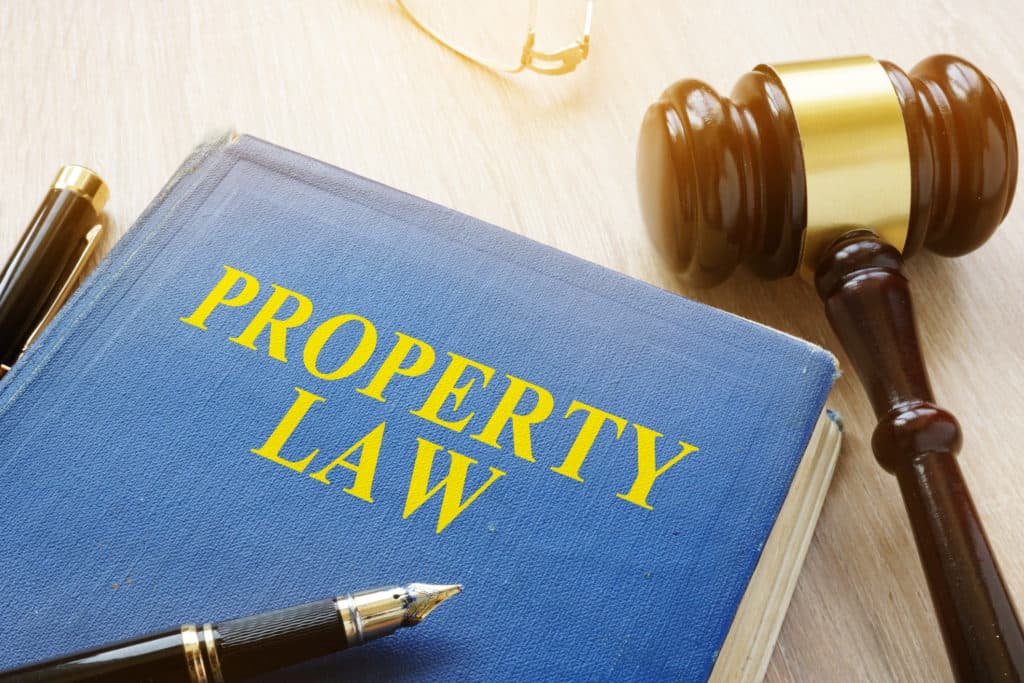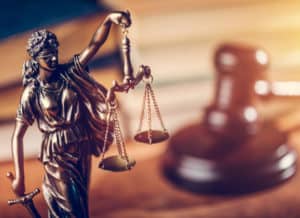We welcome you with a Servant’s Heart and a Warrior’s Spirit. Bienvenidos, Se Habla Espanol.
Check our Real Estate and Premise Liability Section for more Property Law.

Words from the Founder:
In a day and age where people have more respect for screens and incivility than others, this area of law is as vital as tort law (injury law) to this firm.
Why?
Society flourishes when we respect one another and each other’s things.
Property offenses lead to more severe crimes because if a person does not respect others’ property, they do not (or soon will not) respect others’ humanity.
Filing a claim not only brings you justice but may also save the next person from harm. For these reasons, I will ensure these cases are taken seriously.
If justice is to be had, we will fight to find a way.
We Stand Ready To Serve.
-JW Zepeda

The information below focuses on injuries. However, if your loved one was killed due to this type of harm, click here.

We can help with many Property Law needs.
For Example:
Trespass to Land:
Suppose someone or something in the control of another invades your land (below ground or airspace included). In that case, you may have a trespass claim.
Trespass to Chattel:
Use of your property without permission or damage to your property. If someone else used or had your property or another damaged it, you might have a trespass to chattel claim.
Conversion:
It is a trespass to chattel (explained above) where the damage is so extensive that the item must be replaced, or the wrongdoer pays the total value of the loss.
Land Disputes:
These disputes involve some of our most valuable possessions.
Therefore you need to find a Property Attorney who knows how to fight and win.
These disputes vary; some examples are:
Private Nuisance:
Substantial and unreasonable interference with another person’s use or enjoyment of their property.
For Example:
On top of the ordinary Damages that come with property claims, nuisance claims may also successfully get the court to order the wrongdoer to stop what they are doing (Injunctive Relief).
Injunctions:
There are three main types of injunctions: Temporary Restraining Orders, Preliminary Injunctions, and Permanent Injunctions.
An injunction is a court ordering a party to stop doing something.
If the party does not stop, they will be in trouble with the court and jailed.
Public Nuisance:
Substantial and unreasonable interference affects many people’s use or enjoyment of their property.
For Example:
On top of the ordinary Damages that come with property claims, nuisance claims may also successfully get the court to order the wrongdoer to stop what they are doing (Injunctive Relief).
Injunctions:
There are three main types of injunctions: Temporary Restraining Orders, Preliminary Injunctions, and Permanent Injunctions.
An injunction is a court ordering a party to stop doing something.
If the party does not stop, they will be in trouble with the court and jailed.
Land Reach Issues:
If you cannot access your land because other lands, not yours, surround it, a Property Attorney can help get you access.
Partition Contracts:
These contracts turn the community property of married couples into separate property.
Why turn community property into separate property?
Community property is considered the property of both spouses.
Some community property is subject to the debts of both spouses.
Therefore, creditors can come after that property no matter which spouse owns the debt.
Easement Contracts:
These contracts allow others to use your real property.
Easements can be for personal or business use.
Hunting Lease Contracts:
A valid contract can protect your rights while spelling out the lease’s specific terms.
Whether you are the hunter or the person leasing your property to the hunter.
Agricultural Lease Contracts:
A valid contract can protect your rights while spelling out the lease’s specific terms.
Contracts to Rent or Lease from Others:
A contract to rent from others outlines the terms and conditions and the rights of all parties.
Contracts to Rent or Lease your Property:
A contract to rent to others outlines the terms and conditions and the rights of all parties.
Subleases:
A Property Attorney can draft your sublease agreement.
Subleases are arrangements between the lessee (the person leasing) and a third party where the lessee leases some or all their space to another third party (the sub-leaser).
If you cannot afford your rent and want to maintain your credit, this may be a possibility to pay your rent.
A Property Attorney can inform you of your rights to sublease or negotiate with your landlord to give you the freedom to sublease if the lease contract bans the right.
Tortious Interference occurs when a person or company who is not connected with a contract or prospective business relationship causes either to suffer harm.
There are two types of Tortious Interference:
1. Intentional Interference with an existing contract:
(a) Interference with an existing contract,
(b) the Interference was willful and intentional,
(c) The defendant (the person sued) approximately caused the Interference, and
(d) the plaintiff (the person suing) suffered actual damages or loss.
2. Intentional Interference with future business relationships:
(a) There was a reasonable probability that the parties would have entered a contractual relationship,
(b) there was an independent tortious act or illegal act by the defendant (person being sued) that prevented the relationship from occurring,
(c) the defendant did such an act with a conscious desire to prevent the relationship from occurring or knew the Interference was sure or substantially certain to occur because of his conduct, and
(d) the plaintiff suffered actual harm or damages.
Prospective relationships need to be reasonably probable to be actionable.
Interference in a person’s way of earning a living may also be actionable.
Fraudulent Misrepresentation:
Negligent Misrepresentation:
Fraud in the inducement:
Statutory Fraud:
These injuries may have been the result of premise liability.
Premise liability: This is a negligence claim with a duty imposed on the owner or manager due to the classification of a particular person.
The classification is based on why or how a person is on the property.
Below are the legal duties demanded by owners or managers of real estate.
For licenses:
Licensees enter the property with the expressed or implied permission of the owner. Licensees are on the property for their benefit or business.
One example of a licensee is a social visitor.
Suppose the owner knows of any dangers or risks a licensee is likely to encounter. Examples of hazards are loose boards or holes in the ground.
In that case, the owner must warn the licensee or make the risks safe.
The owner also owes the general duty of reasonable care in all active operations.
For invitees:
Invitees are on the property for their benefit and the owner’s benefit. Invitees are present due to an express or implied invitation from the owner.
Invitees include people entering to participate in any activity invited, including the guest or workers of those invitees.
For example, A customer, a skilled laborer hired to do work, or somebody making deliveries.
Even those who would customarily enter the establishment, which is not there due to an invitation, are still considered invitees.
Customary entrants may include, for example, government workers or lien holders.
Invitees are due to the highest level of care.
Owners must warn or make safe ANY dangerous condition that the owner knew about or could have found with a reasonable inspection.
For Example, A store owner would have to warn or make a long-sitting puddle of water safe on a store floor.
The duty to make safe or warn may not apply to apparent risks or dangers.
The owner also has the general duty of reasonable care in all active operations.
For trespassers:
Trespassers are those who come onto the land of another without invitation.
Unknown trespassers: No duty is owed to a trespasser unknown to the owner.
Known “discovered” trespassers: An owner must warn or make safe any conditions made by humans known to the owner that may cause serious harm.
Attractive Nuisance: This law puts a duty on property owners to warn or make safe anything that may attract a child of tender age to be a trespasser.
If attracted to the property, the child trespasser will not be treated as a trespasser. The child had an open invitation to be on the property in the eyes of the law.
The duty owed an individual may change:
The duty owed to a particular individual may change as their classification changes.
In other words, from invitee to trespasser.
For Example: If a customer wanders into the back of a store, where they are not invited, they are now trespassers.
Negligence per se: Occurs when companies or people owe duties by operation of law (this means because the law says so).
Negligence per se has two elements.
1. A law that was meant to defend against the type of harm causing the injury and,
2. The injured person is a member of the protected class the statute is designed to protect.
Inadequate security
This claim is brought due to a breach of the above duties owed to licensees, invitees, or discovered trespassers.
Inadequate security exists when an owner or manager needs to take proper measures after they know or should have known about dangerous situations.
For Example: If you were assaulted, robbed, raped, or experienced any number of harms due to not being adequately secured by the owner or manager of the location, you might have a claim that requires justice.
Improper Security Claims involve more than not having security guards or bouncers.
Improper security may involve having an unreasonably unsafe environment that the owner should have warned of or made safe.
Even if the owner or manager took some protective measures, the owner or manager might be liable for inadequate protection or for not keeping the protective standards.
For Example: Having security lights or cameras that are broken.
Inadequate security can occur in most places that are open to the public.
These claims do not only have to be brought against the wrongdoer. The claim can hold their employer liable as well.
Respondeat superior: This is a way to hold an employer or company responsible for the actions of another (“vicariously liable”). Suppose the company’s representative acted within the scope of their duties when the injury
occurred. In that case, the employer is liable too.
This rule takes an excellent legal argument because the other side will try to argue that their representative was on a “frolic.”
A frolic is a departure from the scope of their duties, and therefore the employer would not be liable.
The employer is usually the only party with the finances and sufficient insurance to bring justice to injured individuals. It is of the utmost importance not to lose this legal argument if there is a path to victory.
Damages would include any financial loss to our Damage to your reputation that results from the claim.
“Damages” in this context mean what you may be able to get from bringing this type of lawsuit.
General Damages (Economic Damages): These are Damages that an attorney does not need to specially plead because they are usually suffered by the type of injury sustained. A characteristic of these Damages is that they are easier to quantify because they are not subjective.
Loss of Income earning ability (known as lost wages):
The injured person would have made money through employment if not injured.
As the name suggests, these damages also apply to the loss of income-earning ability.
Suppose the injured party took a lesser-paying job due to their injuries.
The amount recoverable is the difference between wages before the injury and now.
These wages are measured from the time of the injury to the time of settlement or jury decision.
Future wages:
If the injured person could never do the same job they had before the injury, the decrease in pay will be permanent. The injured party may be entitled to the wages they would have earned in the future at the job they had before the injury.
Furthermore, this recovery is for any quantifiable decrease in the injured person’s financial situation due to employment changes.
For Example:
Commissions and bonuses.
Any change in benefits.
Promotion or raises missed due to the injury.
Medical costs:
These costs will be for past and future medical expenses.
Based on the injury, the injured will need future medical attention. Because the costs are the fault of the liable (this is the civil court equivalent of saying “guilty” in a criminal case) party, that party will be held responsible for these costs.
Special Damages (Non-Economic Damages):
These types of injuries are hard to prove. An attorney must specially plead them because they must be more apparent to third parties.
Mental anguish (Emotional distress) (this is the mental effects that came about due to the injury):
The injured party may recover due to past and future mental anguish caused by the injury.
Though this type of injury may be the most devastating, these injuries may not always be recoverable.
The ability to recover from these injuries is very situation specific. It requires a personal injury attorney who knows the law and case law developments. A competent attorney can fight against insurance companies because insurance companies rarely want to give anything significant for mental anguish.
Pain and suffering:
These types of Damages allow recovery for the injured person for the pain and suffering that the injury caused.
Because this injury is personal, it is often hard for others to understand and believe the pain and suffering the injured person went through or is going through.
Proving the pain and suffering is a sell; either the other side will buy in and believe the injured party, or they will not.
Physical impairment (Loss of enjoyment of life):
This type of Damage may be recoverable if you had an activity you used to do and now can no longer do due to your physical limitations.
Loss of consortium:
Spousal:
If the injury was so severe as to affect your relationship with your spouse, YOUR SPOUSE MIGHT BE ABLE TO RECOVER under this type of Damage. This type of recovery would be from a separate claim filed by your spouse.
Children:
A CHILD COULD SUE SEPARATELY AND CLAIM THIS TYPE OF DAMAGE if their parent’s injury affected the parent’s role in the child’s life.
Disfigurement:
This type of recovery may be allowed when the injury has physically changed your body.
This type of Damage can be for past and future disfigurement.
Any other non-financial harm reasonably associated with the injuries may be recoverable.
Exemplary Damages (Punitive Damages):
To get exemplary Damages, the person looking for these Damages must prove by clear and convincing evidence that the injury is the result of either:
(1) Fraud.
Fraud: Occurs when a person misrepresents something essential to the bargain while knowing the misrepresentation is false, and the person being lied to is justified in their belief of the lie. And the lie caused Damages.
(2) Malice.
Malice: Is a specific intent to inflict substantial harm.
(3) Gross negligence.
Gross negligence: This is an act or omission, which a reasonable person in the wrongdoer’s shoes should have known of the extreme risk due to the probability of significant harm, and the wrongdoer knew of the risk and consciously disregarded the risk.
Unless these Damages are looked for under a statute that authorizes them, then clear and convincing evidence must show the matters and mental state of the statute conditions.
The jury must receive instructions on these Damages and be unanimous in their desire to award such Damages.
Clear and convincing: Proof would impart a “firm belief or conviction” if the evidence was presented to a reasonable person.

There are many defenses to personal injury and other tort cases, but not all will pertain to all injuries.
For Example:
Consent: The person suing allowed the harm to occur or the actions that led to the injury. The victim can give consent expressly (orally or written) or implied (by actions). Consent has other considerations that can waive the defense based on the circumstances or capacity of the victim.
Self-defense: If you reasonably believed that you were in danger and reasonably defended yourself, you may have a valid defense against civil liability. The defense will hinge on whether your belief in the defense and the force used were reasonable. Reasonableness will be decided using an objective standard.
Defense of others: If you reasonably believed that someone else was in danger and reasonably defended them, you may have a valid defense against civil liability. The defense will hinge on whether your belief in the defense and the force used were reasonable. Reasonableness will be decided using an objective standard.
Defense of your property: If you reasonably believed that your property was in danger and you reasonably defended it, you may have a valid defense against civil liability. The defense will hinge on whether your belief in the defense and the force used were reasonable. Reasonableness will be decided using an objective standard.
Defense of another’s property: If you reasonably believed another’s property was in danger and reasonably defended it, you may have a valid defense against civil liability. The defense will hinge on whether your belief in the defense and the force used were reasonable. Reasonableness will be decided using an objective standard.
Shopkeeper privilege: Business owners have a right to detain you to investigate a theft.
Comparative Negligence: Texas is a modified comparative negligent state. In Texas, you can sue for Damages only if you are not more than 50% to blame for your injuries.
Assumption of the risk: Plaintiff (the person suing) was aware of the risk and voluntarily assumed it. This defense would follow the rules of consent. This defense is no longer valid in Texas.
Absolute privilege: Certain positions allow people to act in a way that would otherwise be an actionable tort (a civil action due to harm) and not be held liable for injury caused.
Truth: Truth is a defense concerning defamation torts; the claim is not actionable if the statement is the truth.
Qualified privilege: This is like an absolute privilege but is limited in scope. In other words, it is only a protection for certain torts done for a set of particular circumstances.
How to deal with insurance companies:
People get insurance to cover harm caused to others and themselves, and we all usually have insurance.
Most of us have the impression that insurance companies are in business to help when unexpected expenses arise or tragedies happen, but that is not the purpose of insurance companies.
The purpose of insurance companies is to make money, like any other business.
So, the less money the insurance pays out, the more money they make. That is only common sense.
No matter how nice the person representing the insurance company is, or if you have already dealt with the insurance company and think they are the exception and care for their clients. The insurance company’s primary goal is to find a way not to pay your claim, with few exceptions.
Some insurance companies rely on scare tactics and threats to make you think you must settle or force you to pay out of pocket.
Follow these rules when dealing with insurance companies:
Calling an attorney is always possible, even if you have already talked to an insurance company.
Attorneys are legally obligated to put your interest above all else in matters involving you.
Insurance representatives who are contacting you are professional negotiators.
The above information is just part of the puzzle. A competent attorney must consider all this and more in property cases.
Property Law is constantly in litigation and is highly argument-based.
Hiring a Property Attorney who will do what is needed to understand the current laws and is not afraid to fight hard for their client makes all the difference.
These claims not only bring you justice but it helps to ensure a civilized society that respects others and their property.
Legal disputes can save the next person from the same trouble.
Your Justice Awaits. This Firm Will Be Your Champion And Fight For Your Family’s Honor.
We Will Get It Done.

A San Antonio, Texas, Born and Based Law Firm
Online Services Available All Day – Everyday | Except Christmas |
1005 E. Henrietta Ave., Kingsville, Texas 78363 | Administrative Hub | Mailing Address | Walk-Ins Welcome
401 E. Sonterra Blvd., Ste. 375, San Antonio, Texas 78258 | Walk-ins By Appointment Only
Some Services Are Offered World-Wide
All Services Are Available Throughout The State Of Texas
844 7-JWZLAW = 1-844-759-9529– Primary Number
Local Texas Phone Numbers
210-802-75JW= 210-802-7559
325-274-75JW= 325-274-7559
361-600-15JW= 361-600-1559
830-255-75JW= 830-255-7559
737-295-25JW= 737-295-2559
956-594-81JW= 956-594-8159
IMPORTANT NOTICE: THE CONTENT OF THIS WEBSITE IS NOT LEGAL ADVICE. THE CONTENT ON THIS WEBSITE IS FOR INFORMATIONAL PURPOSES ONLY. Using this website does not mean an attorney-client relationship exists between you and this law firm. The law is not a one size fits all approach, and your case must be thoroughly discussed with a competent attorney. We stand ready to serve and welcome you to contact our office to discuss your needs.
© 2022 JW Zepeda Law Firm | A Professional Limited Liability Company | All Rights Reserved.